Consider an x-y plane and mark the locations A, B and C whose coordinates are given to be (5, 2), (5, 8) and (-5, 8) respectively. A uniform electric field of 200 N/C exists in space directed along the negative x-direction. Calculate (i)VB−VA(ii)VC−VA(iii)VB−VC.
(i) VB−VA will be equal to the work done in moving a unit positive test charge from B to A. Since the electric field is along the negative X-axis and the displacement of the charge will be perpendicular to it (along Y-axis), no work will be done in moving a charge from A to B.
∴VB−VA=WBAq0=0
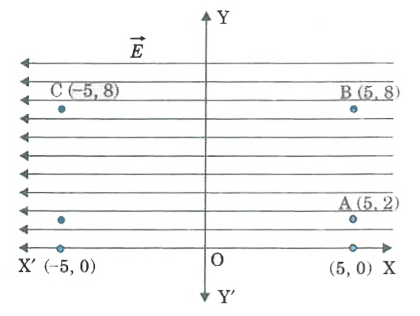
(ii) VB−VA=0
⇒VA=VB
Now, VC−VA=VC−VB
Positive work will be done by the electric field when a unit positive charge moves from point B to C (in the direction of →E)
Work will be done by the electric field when a unit positive charge moves from point C to A (in the direction of →E) and is calculated as below:
Let VC−VB=ΔV.
Here, Δx=√[5−(−5)]2+(8−8)2
=√(10)2=10m,E=200N/C
∴ΔV=−E.Δx
VC−VB=−200×10=−2,000V
⇒VC−VB=−2,000VorVC−VA=−2,000V
(iii) From above,
VC−VB=−2,000V
∴VB−VC=2,000V
Point B will be at a higher potential.
Topper's Solved these Questions
- BOOK - MODERN PUBLICATIONCHAPTER - ELECTROSTATIC POTENTIAL AND CAPACITANCE EXERCISE - PRACTICE PROBLEMS 110videos
ELECTROSTATIC POTENTIAL AND CAPACITANCE
- BOOK - MODERN PUBLICATIONCHAPTER - ELECTROSTATIC POTENTIAL AND CAPACITANCE EXERCISE - PRACTICE PROBLEMS 221videos
ELECTROSTATIC POTENTIAL AND CAPACITANCE
- BOOK - MODERN PUBLICATIONCHAPTER - ELECTROMAGNETIC WAVESEXERCISE - CHAPTER PRACTICE TEST14videos
ELECTROMAGNETIC WAVES
- BOOK - MODERN PUBLICATIONCHAPTER - MAGNETISM AND MATTEREXERCISE - CHAPTER PRACTICE TEST FOR BOARD EXAMINATION16videos
MAGNETISM AND MATTER
Similar Questions
A uniform electric field E exists in a region of space. Refer to the given figure for the location of three points A, B and C.
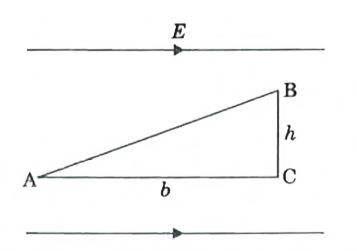
Find: (a)VB−VA (b)VC−VAView SolutionA uniform electric field of 30NC−1 exists along the X-axis calculate the potential difference VB−VA between the points A (4m,2m) and B(10m,5m).
View Solution
Knowledge Check
- Question 1 - Select One
In uniform electric field E=10N/C, find
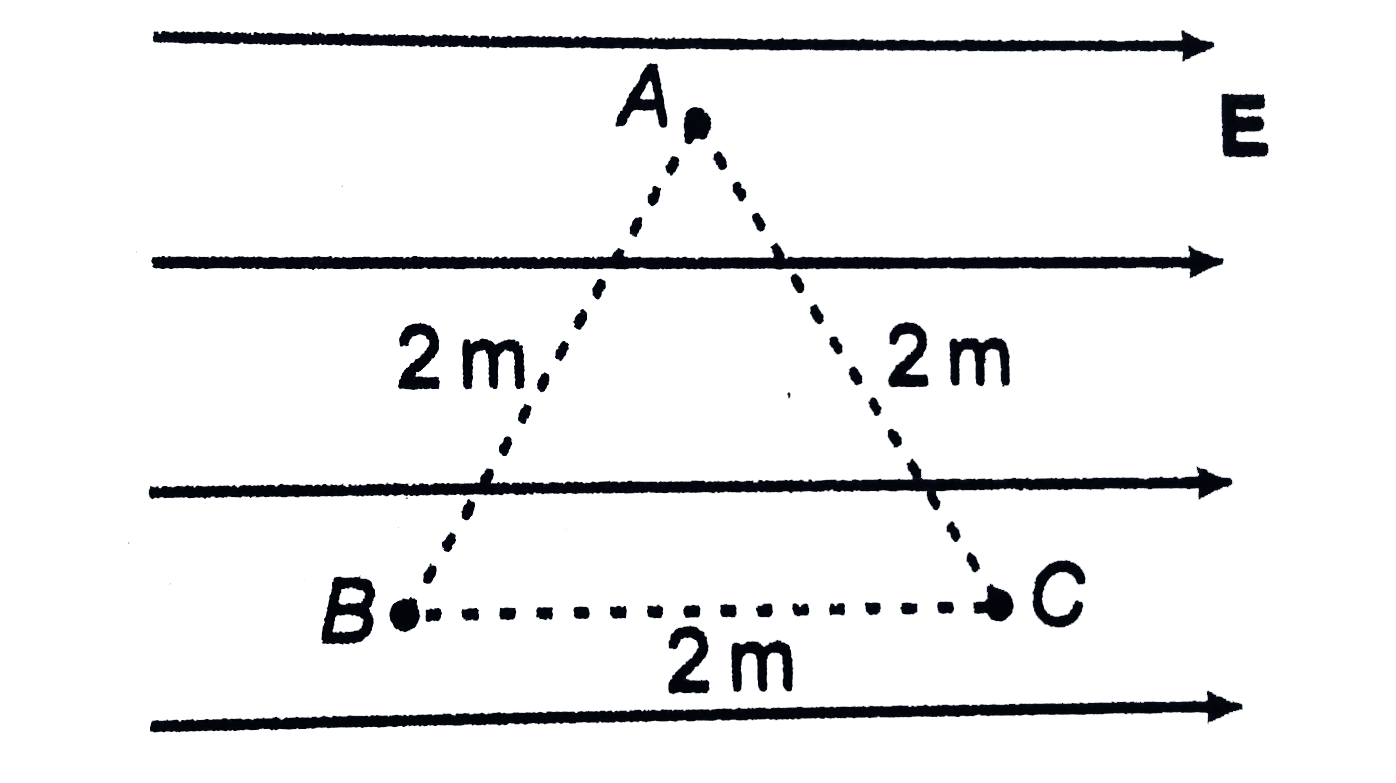
a. VA−VB , b. VB−VCA−10V and 20VB10V and −10VC30V and 20VD−10V and 40V - Question 2 - Select One
A uniform electric field of 400Vm is directed at 45∘ above the x-axis as shown in the figure. The potential difference VA−VB is given by
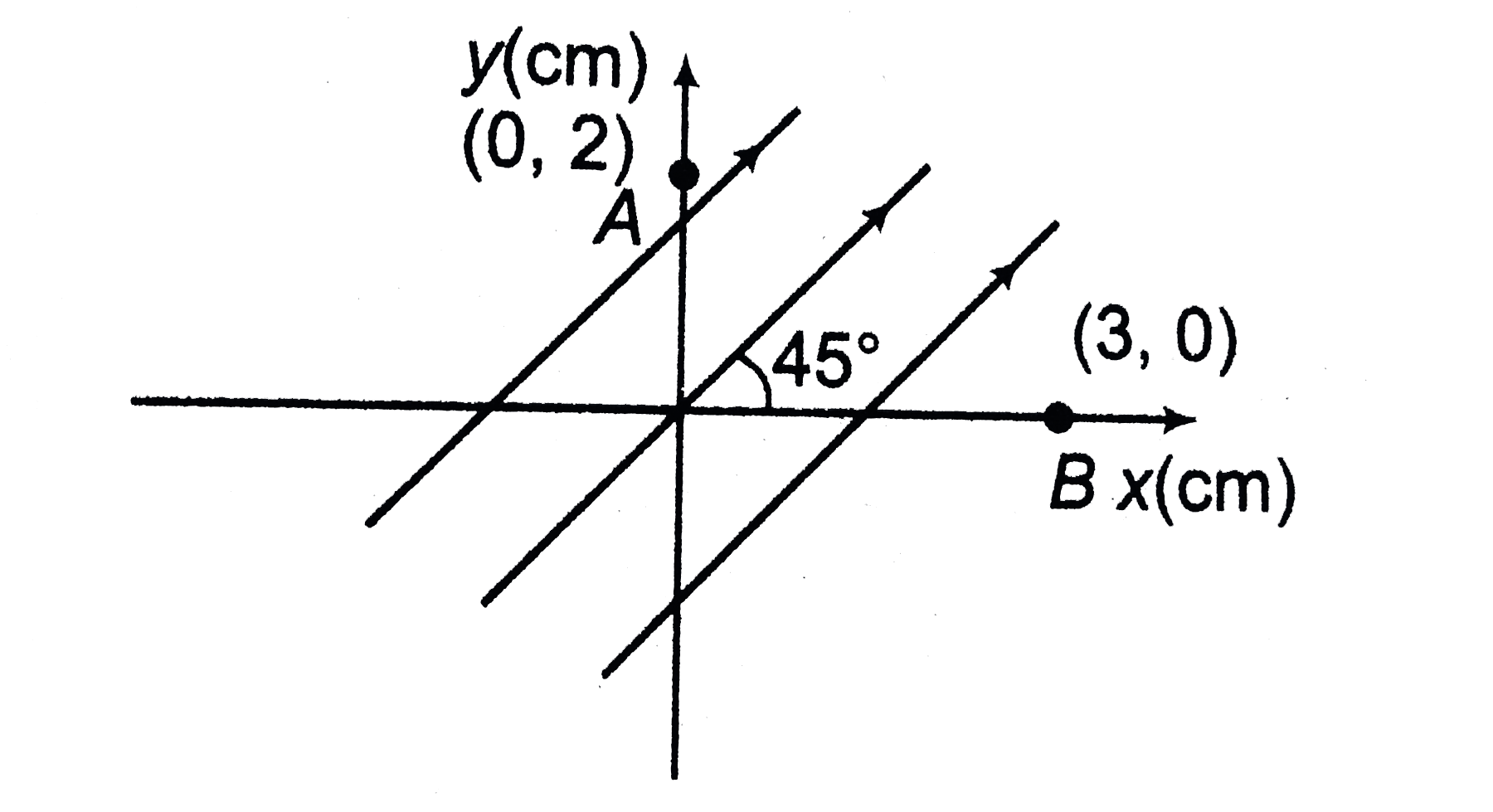 A0B4VC6.4VD2.8V
A0B4VC6.4VD2.8V - Question 3 - Select One
A uniform electric field exists in x−y plane. The potential of points A(−2m,2m),B(−2m,2m) and C(2m,4m) are 4V,16V and 12V respectively. The electric field is
A(4ˆi+5ˆj)VmB(3ˆi+4ˆj)VmC−(3ˆi+4ˆj)VmD(3ˆi+4ˆj)Vm
When an electron moves from A to B along and electric field line as shown in Fig. the electric field does 3.94×10−19J of work on it. What are the electric potential differences
(VB−VA),(VC−VA),(VC−VB) ?
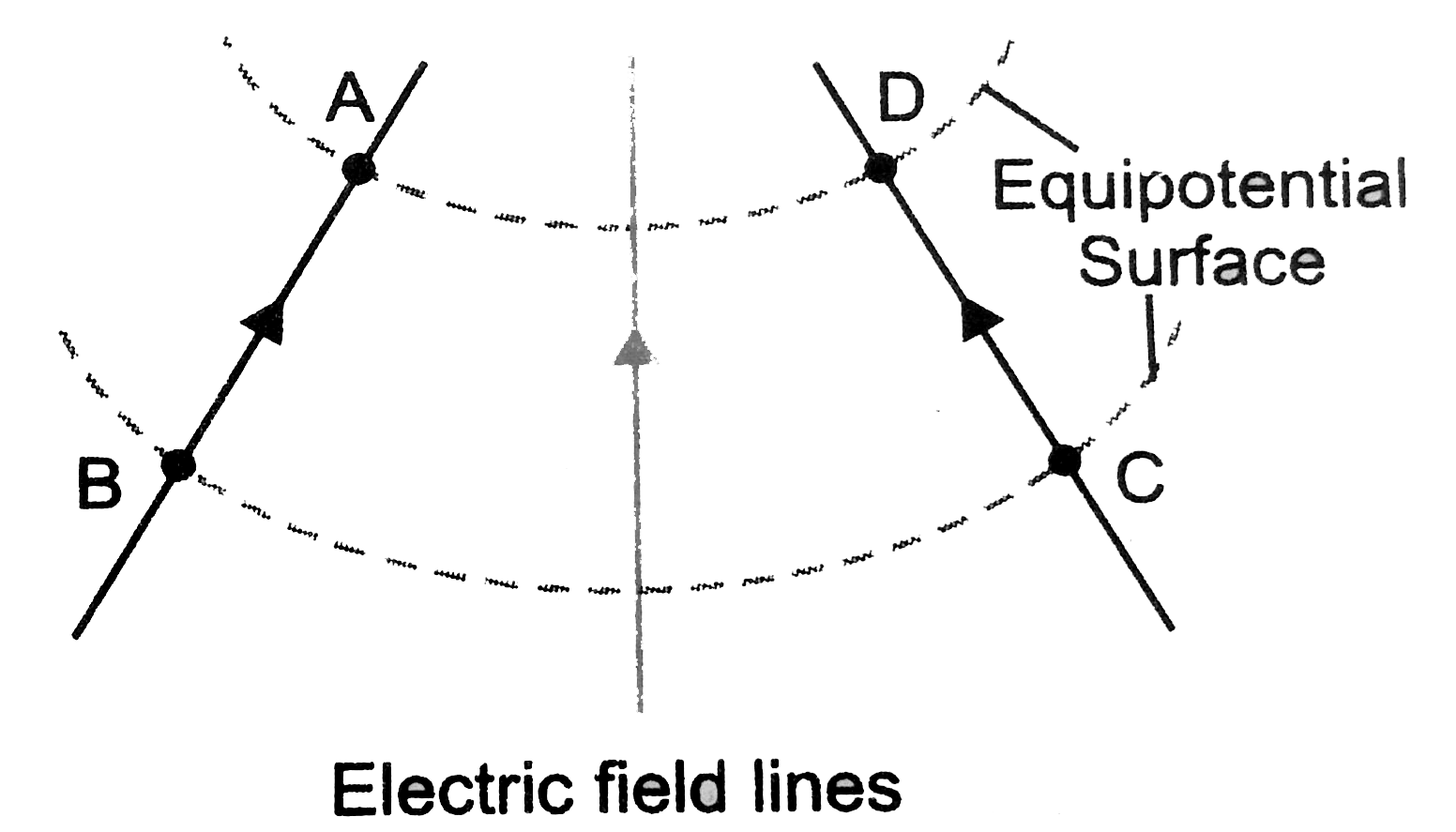 View Solution
View SolutionAn electric field of 20 N/C exists along the negative x-axis in space. Calculate the potential difference VB−VA, where the points A and B are given by :
(a) A= (0, 0), B=(0, 4m)
(b) A=(2m, 1m), B=(4m, 3m)View SolutionA circuit has a section ABC if the potential at point A,BandC are V1,V2andV3 respectively , calculate the potential at point O
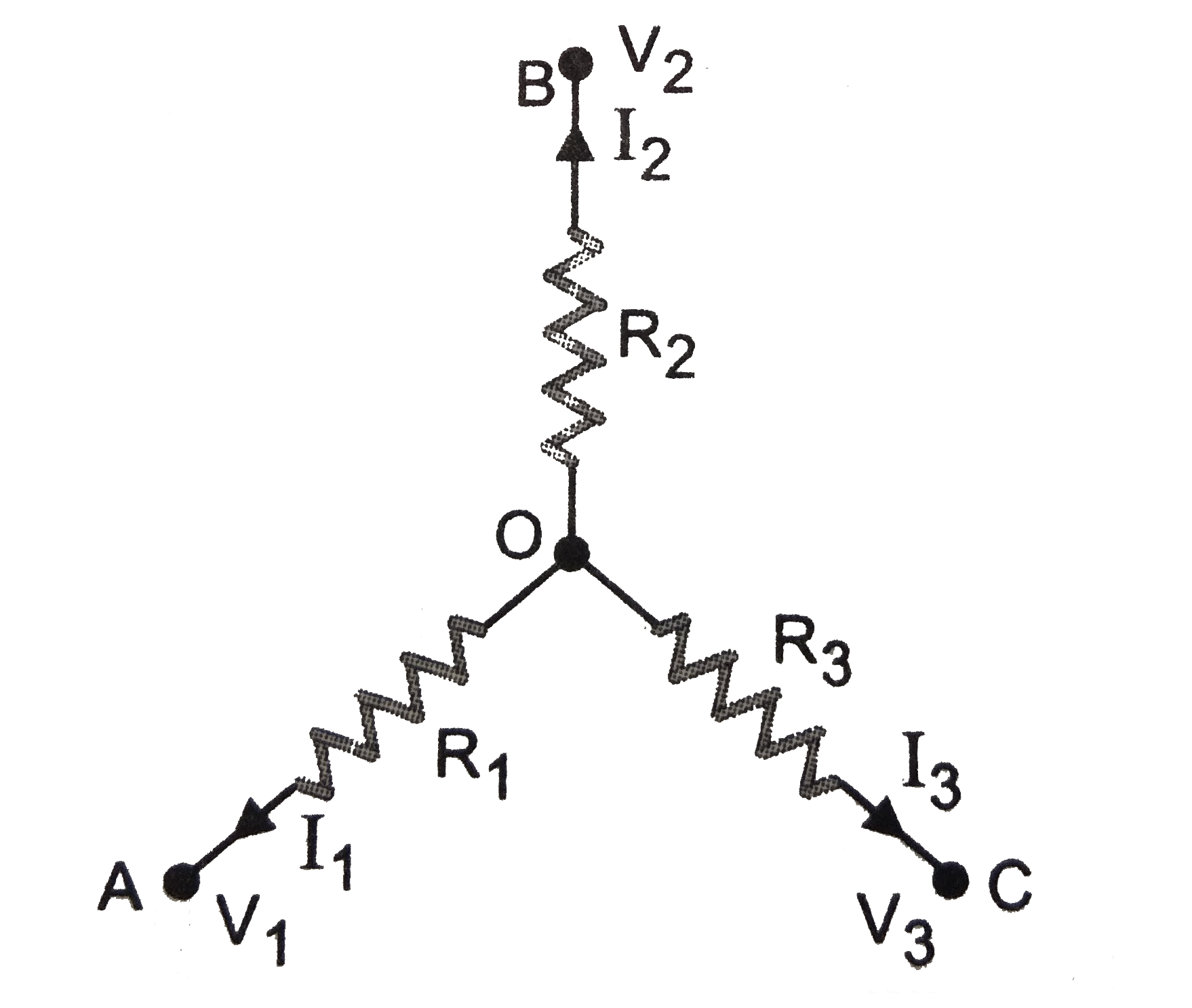 View Solution
View SolutionA uniform electric field exists in x-y plane. The potential of points A(2m,2m),B(−2m,2m) and C(2m,3m) are 4V,16V and 12V respectively. The electric field is
View SolutionThe direction of the field B at P is
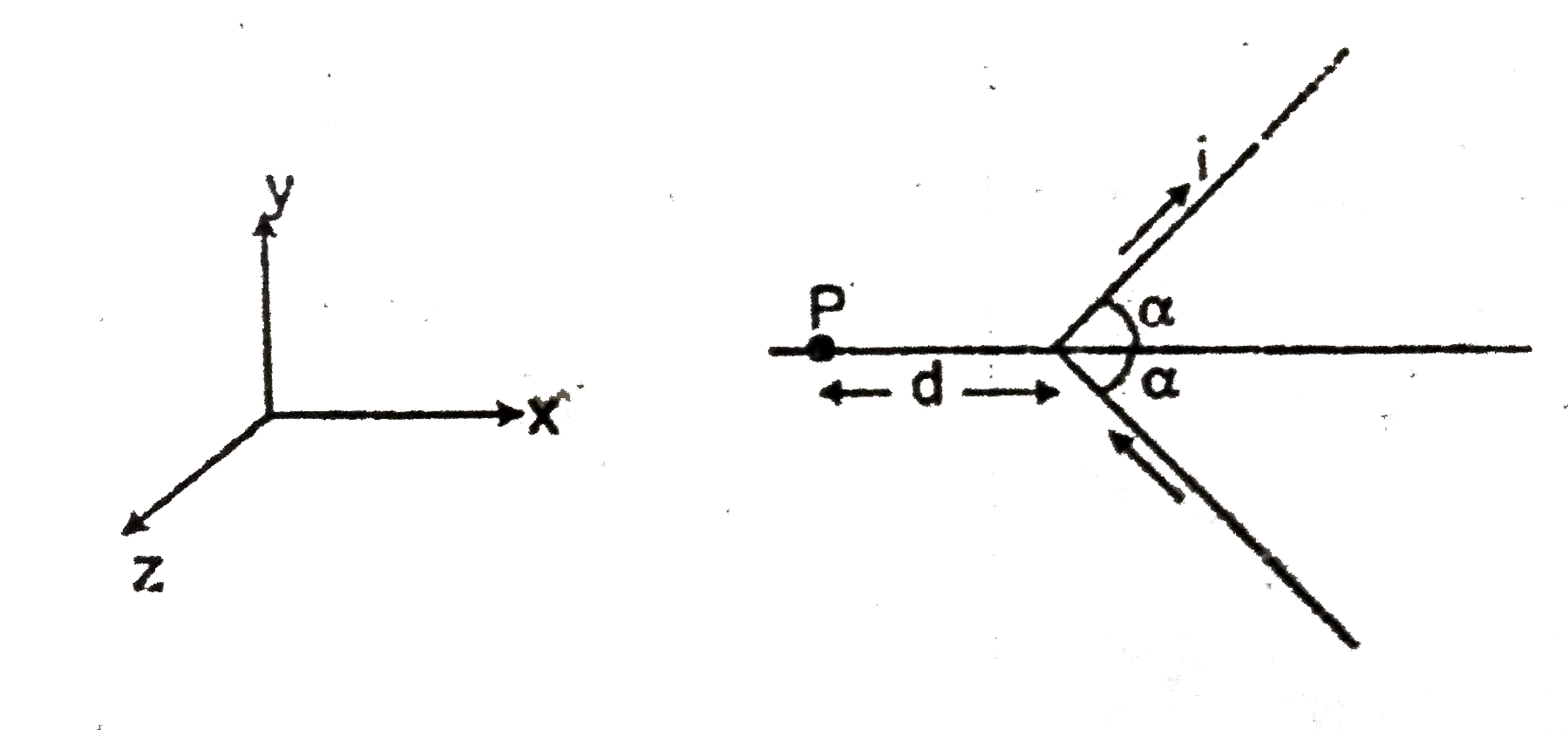
the V shaped wire is in x-y planeView Solution
